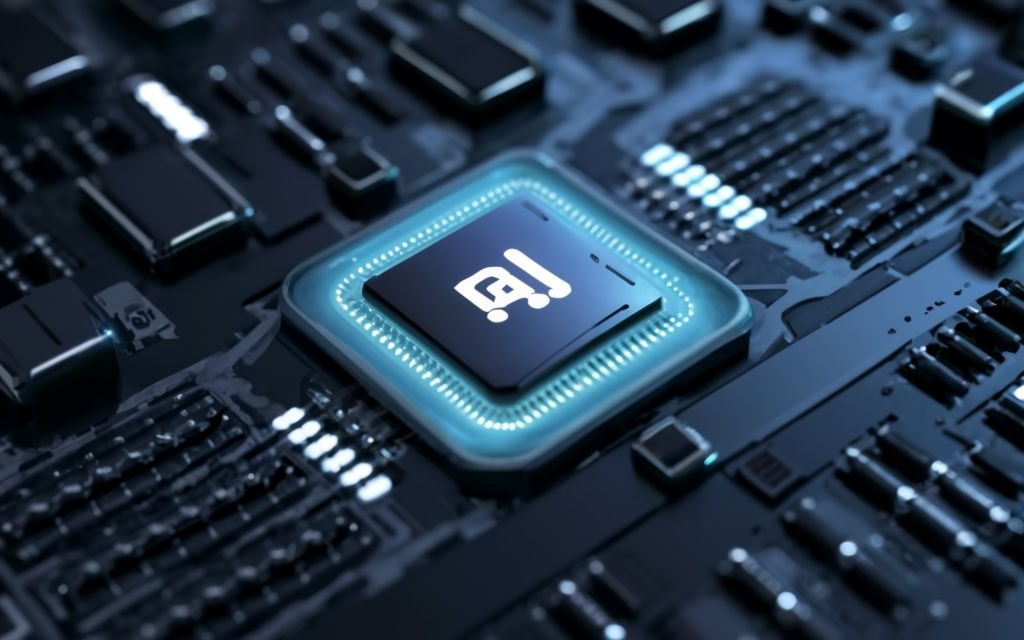
Sam Altman’s plan to launch a massive project to revamp the global semiconductor industry, aiming to significantly increase AI chip production. The project requires a hefty investment of $5 to $7 trillion. The reason behind this project is the shortage of AI chips, which hampers AI progress across major tech companies. The Open AI CEO envisions a world where Artificial Intelligence can grow without these barriers by building a new chip ecosystem that brings together manufacturers, suppliers and users.
What are Sam Altman’s plans to speed up AI Chips manufacture?
Sam Altman plans to invest in chip companies, build factories to make chips efficiently and explore new chip technologies. One of the biggest challenges the sensational tech head faces is raising the huge amount of money needed for this project. Possible sources of funding include sovereign wealth funds, private equity, and tech giants. Each funding source comes with its own set of pros and cons. For example, sovereign wealth funds have tons of money but can be secretive and have their own hidden goals. Private equity firms usually want quick returns and might push the project in ways that aren’t ideal.
Altman is seeking this funding from investors, including the government of the United Arab Emirates, and is also considering a broader partnership with investors, chipmakers, and power providers to build and operate factories for AI chip production. The initiative is aimed at addressing the scarcity of graphics processing units (GPUs) crucial for training large language models. The funding would be used to significantly expand AI chip capacity, which would require a substantial amount of natural resources. Altman’s proposal involves collaboration with chip makers and energy firms to create the necessary infrastructure for increased chip production. The potential environmental impact and the significant amount of funding being sought make this initiative a subject of debate and scrutiny
What is the current status of AI Chips manufacturing?
The current state of AI chip production is characterized by significant growth and investment. The global AI chips market is projected to reach US$257.6 billion by 2033, with a compound annual growth rate (CAGR) of 24.4% over the forecast period of 2023 to 2033. This growth is driven by increasing demand across various industry verticals, including IT & Telecoms, Banking, and Financial Services.
The market is segmented by type, including GPU, ASIC, FPGA, CPU, and others, and by application, such as machine learning and natural language processing. Leading-edge node design, manufacturing, and operational costs are key factors influencing AI chip production. There are also discussions about the geopolitical implications of AI chip production, with a focus on the advantages of countries with the capacity to develop and acquire state-of-the-art semiconductor chips. Additionally, there are concerns and debates regarding the potential environmental impact, cost-effectiveness, and energy efficiency of AI chip production.
How important are AI Chips in this age of Artificial Intelligence?
Regular computer chips, good at basic tasks like math and logic. But for complex things like recognizing faces or understanding language, you need a more powerful chip, like a specialized graphics card for gaming. AI chips are like that extra powerful hardware, but specifically designed for Artificial Intelligence tasks.
Here’s the gist:
They’re specialized: Regular chips are good at many things, but AI chips are built for specific AI tasks like crunching massive amounts of data for learning and making predictions. They’re like having a tool designed just for hammering nails, instead of a Swiss Army knife.
They’re faster and more efficient: Running AI on regular chips is like trying to play a demanding game on an old computer. It’s slow and drains the battery. AI chips are optimized for these tasks, making them faster and more energy-efficient.
They’re crucial for AI advancement: Without them, progress in areas like self-driving cars, medical diagnosis, and personalized recommendations would be much slower. They’re the engine driving the AI revolution. Think of it this way, regular chips are like a bicycle, good for getting around but limited in speed and functionality. On the other hand AI chips are like a high-performance car, designed for specific tasks and much faster and more powerful.

Why are AI Chips important?
They power the future: AI is transforming many industries, and AI chips are like the fuel that makes it all possible. From self-driving cars to personalized medicine, they’re key to unlocking the potential of AI.
They impact our lives: They’re already embedded in many devices we use daily, from smartphones to smart speakers. As AI becomes more integrated, these chips will be even more important. So, AI chips are like specialized tools that are crucial for the advancement and everyday use of artificial intelligence. They’re not just fancy tech, they’re shaping the future in many ways.
How big is 7 Trillion USD for common people?
The amount of $7 trillion is exceedingly large and challenging to comprehend for the common man. To put it into perspective, one trillion dollars would stretch nearly from the earth to the sun and would take a military jet flying at the speed of sound, reeling out a roll of dollar bills behind it, the length of five school buses to be exact
In the context of AI, it’s worth noting that AI could contribute up to $15.7 trillion to the global economy in 2030, more than the current output of China and India combined. The proposed $7 trillion for AI chip production is significantly larger than the current global semiconductor market, which is projected to become a $1 trillion business by the end of the decade. Therefore, $7 trillion is an unprecedented amount, especially in the context of corporate fundraising and market capitalizations of major companies.
Will Sam Altman succeed in raising 7 Trillion USD for AI Chips production?
The likelihood of Sam Altman succeeding in raising $7 trillion for AI chip production is uncertain. Altman’s efforts to secure such a substantial amount of funding have been met with skepticism due to the astronomical quantity of natural resources and rare earth minerals that would be required, as well as the potential environmental impact of such a massive initiative.
The amounts discussed are considered outlandishly large by the standards of corporate fundraising, and the uphill battle facing Altman is evident, given that the proposed funding would far exceed the current global semiconductor market. While Altman is in discussions with potential investors, including the government of the United Arab Emirates, the feasibility and implications of raising such a staggering sum for AI chip production remain subject to debate and scrutiny




